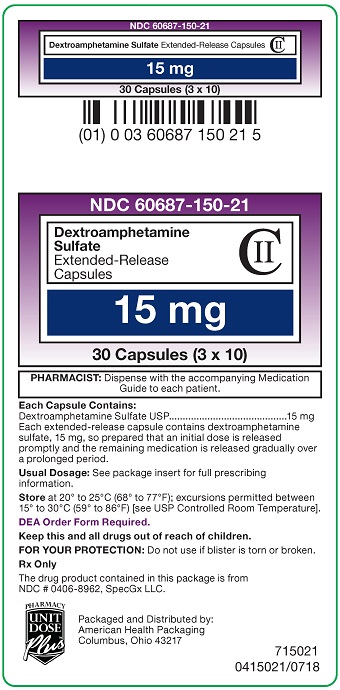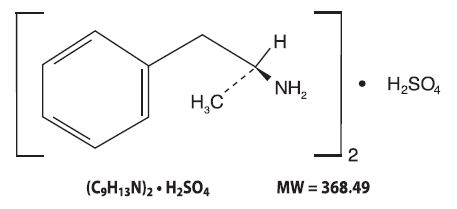Dextroamphetamine Sulfate Extended-release | Dextroamphetamine Sulfate Capsule, Extended Release while Breastfeeding

Can I use Dextroamphetamine Sulfate Extended-release | Dextroamphetamine Sulfate Capsule, Extended Release while breastfeeding?

Dextroamphetamine Sulfate Extended-release | Dextroamphetamine Sulfate Capsule, Extended Release Breastfeeding Analsys
Dextroamphetamine sulfate while Breastfeeding
Low RiskCAS Number: 51-63-8

A sympathomimetic drug and central nervous system stimulant, it has a similar action and uses to amphetamine, its dextro isomer.It is used (GSK, 2007) in the treatment of narcolepsy (Wise, 2007) and Attention Deficit Hyperactivity Disorder (ADHD), and is also used as an illegal drug (Oei, 2012). It is excreted in breast milk, concentrating about 3 times more than in plasma. This concentration assumes a relative dose about 6% (Ilett, 2007). In infants whose mothers were taking dexamfetamine as treatment for ADHD, levels ranging from undetectable to 14% of maternal plasma levels have been measured and no problems were observed in the clinical follow-up of these infants (Ilett, 2007). There is little information on the impact of amphetamine abuse on the development and health of infants (Oei, 2012, Wise, 2007; Moretti, 2000), but it is known that they are more exposed to social problems, domestic violence, and lower breastfeeding rates (Oei, 2010). There is controversy over the possibly mild negative effect of amphetamine on prolactin (Petraglia, 1987; DeLeo, 1983), but milk production in mothers who took it therapeutically was not affected (Öhman, 2015). During breastfeeding, the therapeutic use (narcolepsy, ADHD) of dexamphetamine can be assessed, using the lowest possible effective dose and monitoring the occurrence of irritability, insomnia, lack of appetite and weight loss. Its use as an illegal drug is totally discouraged (Oei, 2012). See below the information of these related products:
Dextroamphetamine Sulfate Extended-release | Dextroamphetamine Sulfate Capsule, Extended Release Breastfeeding Analsys - 2
Dextroamphetamine sulfate while Breastfeeding
CAS Number: 51-64-9
In dosages prescribed for medical indications, some evidence indicates that dextroamphetamine might not affect nursing infants adversely. The effect of dextroamphetamine in milk on the neurological development of the infant has not been well studied. It is possible that large dosages of dextroamphetamine might interfere with milk production, especially in women whose lactation is not well established. Relevant published information was not found as of the revision date on the safety of breastfeeding during amphetamine abuse. One expert recommends that amphetamines not be used therapeutically in nursing mothers.[1]

I already used Dextroamphetamine Sulfate Extended-release | Dextroamphetamine Sulfate Capsule, Extended Release and meanwhile I breastfed my baby should I be concerned?
Dextroamphetamine Sulfate Extended-release | Dextroamphetamine Sulfate Capsule, Extended Release is in the category of low risk, if you have already used it then its not a big deal if health and behavior of baby is good. However your health care provider shall be aware of the fact that you have used Dextroamphetamine Sulfate Extended-release | Dextroamphetamine Sulfate Capsule, Extended Release so you should inform him based on your convenience.
My doctor has prescribed me Dextroamphetamine Sulfate Extended-release | Dextroamphetamine Sulfate Capsule, Extended Release, what should I do?
Dextroamphetamine Sulfate Extended-release | Dextroamphetamine Sulfate Capsule, Extended Release comes in category of low risk and if your doctor is aware that you are breastfeeding it should be ok to use
If I am using Dextroamphetamine Sulfate Extended-release | Dextroamphetamine Sulfate Capsule, Extended Release, will my baby need extra monitoring?
Not much monitoring required while using Dextroamphetamine Sulfate Extended-release | Dextroamphetamine Sulfate Capsule, Extended Release
Who can I talk to if I have questions about usage of Dextroamphetamine Sulfate Extended-release | Dextroamphetamine Sulfate Capsule, Extended Release in breastfeeding?
US
National Womens Health and Breastfeeding Helpline: 800-994-9662 (TDD 888-220-5446) 9 a.m. and 6 p.m. ET, Monday through Friday
UK
National Breastfeeding Helpline: 0300-100-0212 9.30am to 9.30pm, daily
Association of Breastfeeding Mothers: 0300-330-5453
La Leche League: 0345-120-2918
The Breastfeeding Network supporter line in Bengali and Sylheti: 0300-456-2421
National Childbirth Trust (NCT): 0300-330-0700
Australia
National Breastfeeding Helpline: 1800-686-268 24 hours a day, 7 days a week
Canada
Telehealth Ontario for breastfeeding: 1-866-797-0000 24 hours a day, 7 days a week
